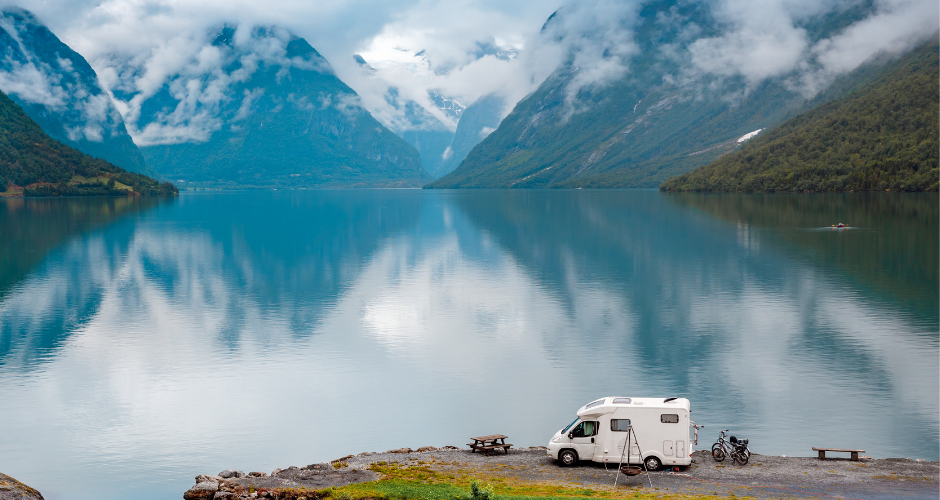One of the biggest mistakes that RV owners frequently make is assuming their auto insurance coverage extends to their RV. Do not make this mistake! RVs are not just cars; they are essentially a home on wheels. So, the unique function of RVs means they need a unique form of insurance.
What is RV Insurance?
Recreational vehicle insurance is almost a hybrid between home and auto insurance because that is essentially what an RV is. Since RVs are so large, they are more likely to cause severe accidents than a standard sedan. So, RV coverage provides owners with a higher amount of liability coverage to account for the increased risk of operating an RV.
Another important aspect of RV insurance is it covers all the personal items in the RV that you brought with you on your trip. Typically, homeowners insurance does not cover all these items while they are away from your home, and auto insurance will certainly not cover all of it.
Like auto insurance, RV insurance is required to finance or rent an RV. The state of Texas also requires anyone who owns a recreational vehicle to have recreational vehicle insurance.
Vehicle Classes and Insurance
Your RV’s class plays a role in the type and how much coverage your need. Having different classes is one of the significant differences between RV and auto insurance.
Here are the three major types of RV:
Class A
- Luxury vehicles/converted busses
- Up to 75 ft. long
- Living areas and bathrooms
Class B
- Camper vans, pop-up, or travel trailers
- Small kitchens or grills
- May have water heaters, AC, or bathroom facilities
Class C
- Cargo vans
- The camper portion is held over the cab of the truck
RV Insurance Coverage vs. Auto Insurance Coverage
There are some similarities between these two types of policies. Both have liability, collision, comprehensive, and often under-/uninsured motorist coverage, but that is where the similarities end. Here are a few of the unique coverages that are exclusive to RV insurance policies:
Contents Insurance
Contents insurance covers any of the passengers’ personal belongings. As we said earlier, these items will most likely not be covered by home or auto insurance. With recreational vehicle contents insurance, the policy will cover anything you bring with you and keep in the vehicle if they receive damage in an accident.
Emergency Expenses
This coverage is most commonly used to pay for transportation or a place to stay if your RV is rendered uninhabitable.
Campsite and Vacation Liability
Standard auto insurance will not cover any injuries that occur in your RV while at the campsite or park. If you do not have RV insurance and a third party falls your RVs stairs while exiting the vehicle, you would have to pay for their injuries.
Differences in Cost
The factors that play into the cost of RV and auto insurance are quite similar. For example, your driving history, previous insurance claims, and age all impact the price. How high or low your deductible is also has a significant effect. The amount of time you plan on driving your recreational vehicle also plays a role in how expensive your insurance coverage will be.
RV insurance gets a little different and more expensive when the insurance covers the vehicle itself. Some RVs are significantly more costly than the average car, so naturally, the insurance costs more. Additional policies like contents coverage also play a role in determining the price of the insurance policy.
If you own a recreational vehicle, you need to have proper insurance coverage to protect you from severe liability and the costly repair or replacement of your motor home. For more information on our RV insurance offerings, contact Arthur Blake Insurance today! We have been serving the people of Plano, Dallas, Frisco, and the rest of North Texas since 2001. We will make sure you have all the coverage you need to enjoy your vacations worry-free. Give us a call to speak to an experienced agent today.

